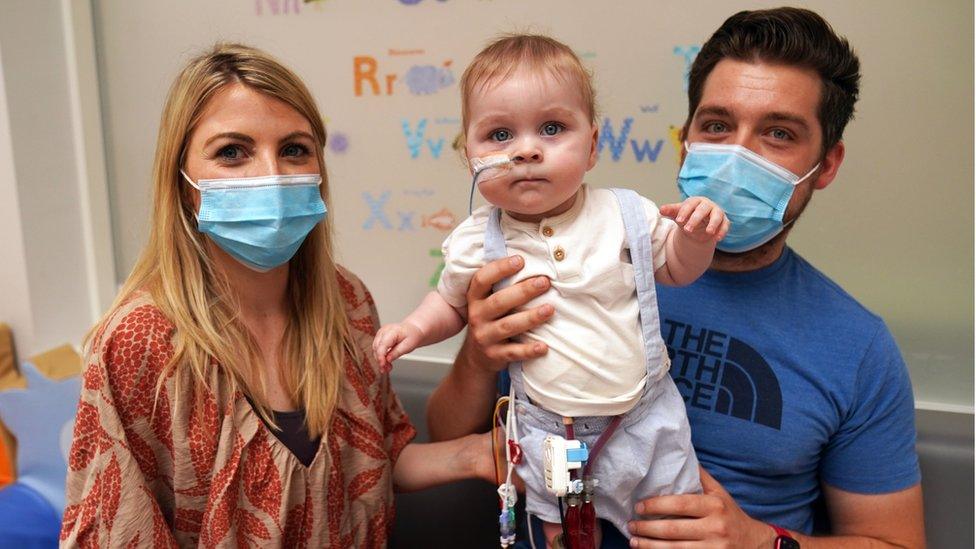Toddler who spent life in hospital gets heart transplant
- Published
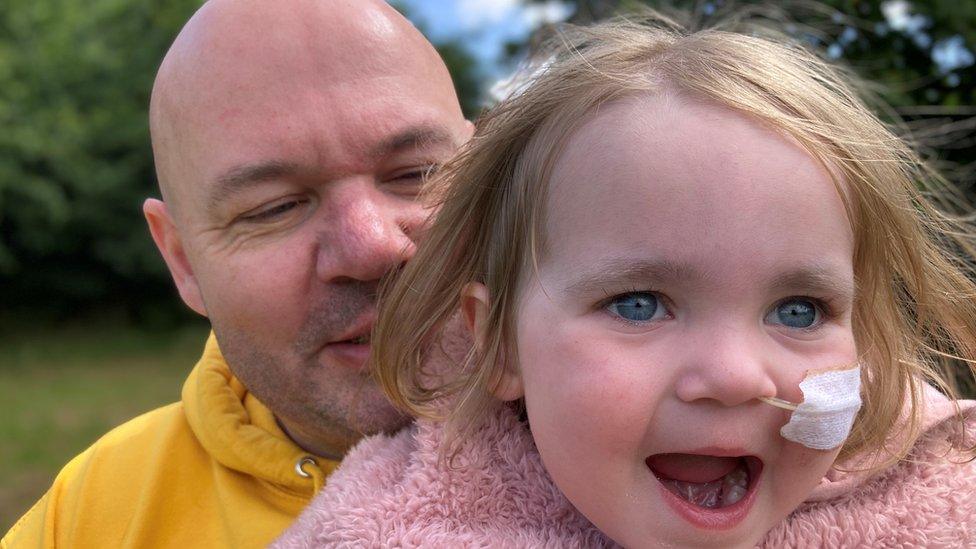
Two-year-old Beatrix is thriving weeks after having the operation, her parents said
A little girl who has spent most of her life in hospital is back home after a heart transplant.
Last October Beatrix, now two, was the face of a photo campaign raising awareness of child organ donation.
Her parents Cheryl and Terry were asking families to consider the "unthinkable" and donate their child's organs.
Beatrix was being kept alive by a machine but now weeks after having the operation she is "thriving".
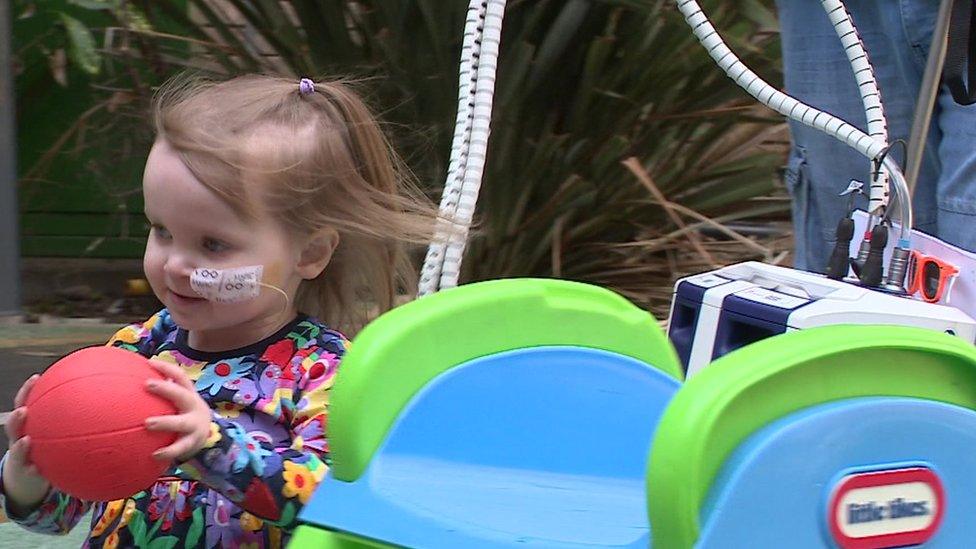
Her parents are deeply grateful to the organ donor family for their "courageous" decision
Beatrix was one of about 200 UK children awaiting a life-saving organ transplant, but with only about 50 donors a year the wait was long, with many not surviving.
The problem is not believed to be due a shortage of potential donors, but rather because the first time most people are asked about allowing their child's organs to be donated comes at the most devastating time of their lives.
Terry and Cheryl want people to think about the issue before their children are born.
Beatrix, from Burnopfield, County Durham, celebrated many of her milestones of childhood in Newcastle's Freeman Hospital, including her first steps, words and teeth.
So when her parents got the call that a heart was available, they said they were overjoyed but terrified she would have to undergo such a complex and risky procedure.
'Absolutely petrifying'
Cheryl said on hearing a heart was available she felt "this is Beatrix's chance to have a normal life outside of this hospital".
"I grasped on to it and that's the feeling that stayed with me for those 24 hours, this is her chance to go home," she said.
"But underlying that there was this feeling that it could be our last morning with Beatrix.
"She's facing a massive operation with lots of risks. Absolutely petrifying when you think about it."
Up until Beatrix had her operation, she had been attached to a so-called Berlin heart, a pump which replicates the heart.
Her parents said they felt deep gratitude to her donor family.
Terry said: "It's called the gift of life for a reason, they (the donor family) have enabled Beatrix to have the hope of a future.
"We don't know what her life is going to bring her, but every second of her life is down to them and their courage.
"That's the power of organ donation, it ripples onwards and outwards for a long time to come."
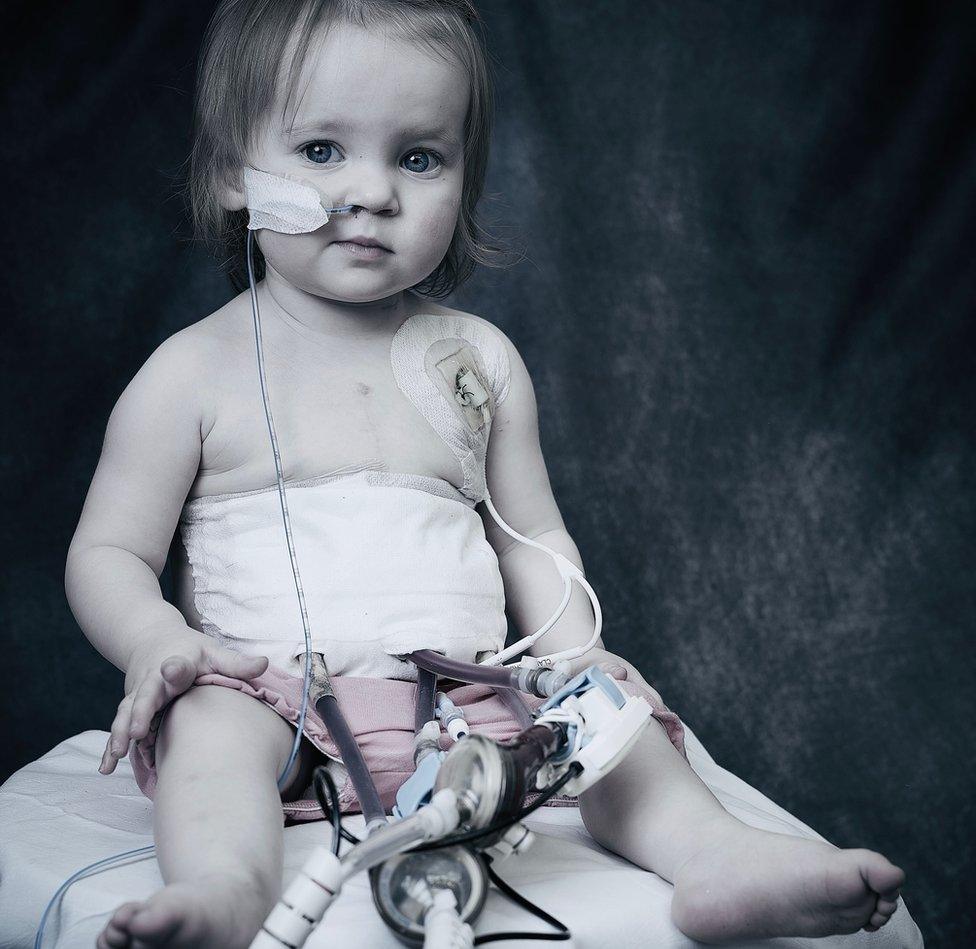
Beatrix, featured in the photo awareness campaign, was attached to a Berlin heart to keep her alive
Terry and Cheryl have experience of both sides of organ donation. In 2018 their daughter Isabel was still-born.
Doctors asked if they would donate her organs, Terry immediately refused but Cheryl said yes.
"Cheryl was right," Terry said. "The difference between us was I had never even thought about it, while Cheryl had previously discussed it and made a decision long before.
"Losing a child is just the worst thing imaginable, and my instant response was to be protective of her. I did not want anyone touching her.
"I was in no state to even think about it, but because Cheryl already had, she said 'of course we will help'."
They want doctors and midwives to ask prospective parents to think about it before their children arrive, and to even teach lessons in school to the parents of the future.
Terry added: "If you have the opportunity to save lives. What greater legacy can there possibly be?"
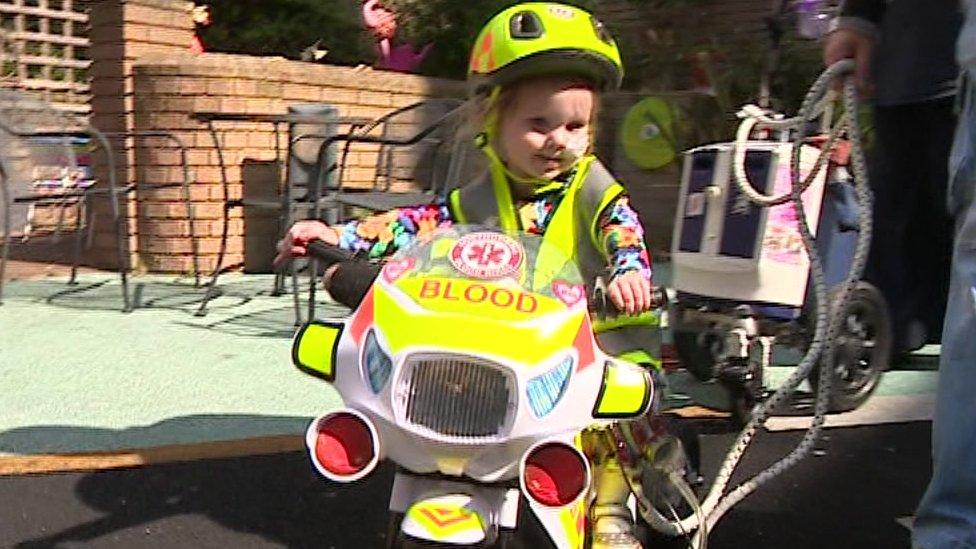
Beatrix after her life-saving heart transplant

Follow BBC North East & Cumbria on Twitter, external, Facebook, external and Instagram, external. Send your story ideas to northeastandcumbria@bbc.co.uk, external.
Related topics
- Published2 October 2022
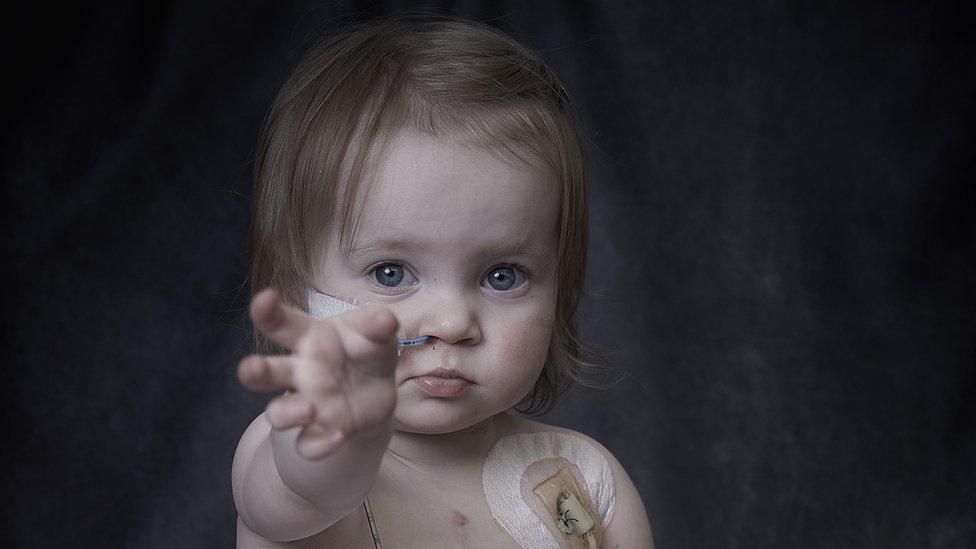
- Published13 August 2022
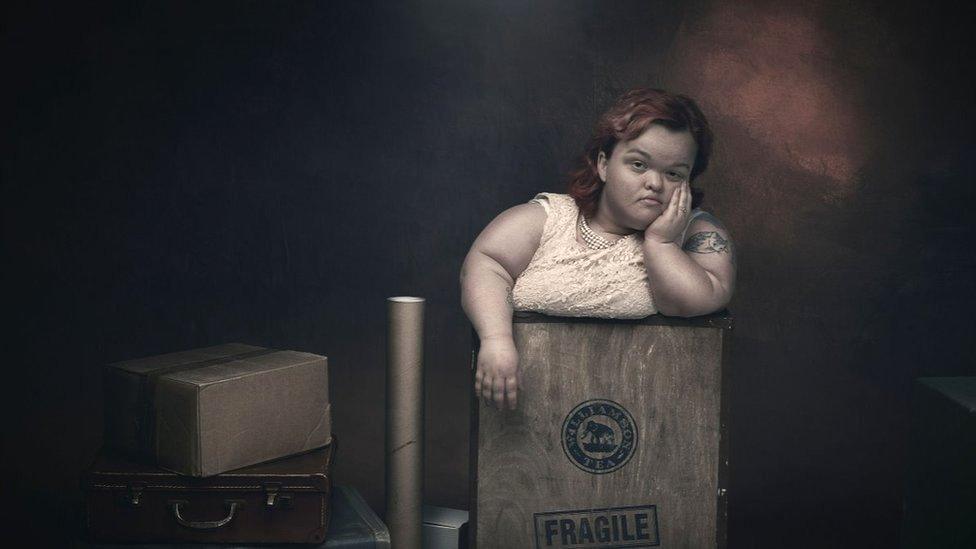
- Published26 July 2022
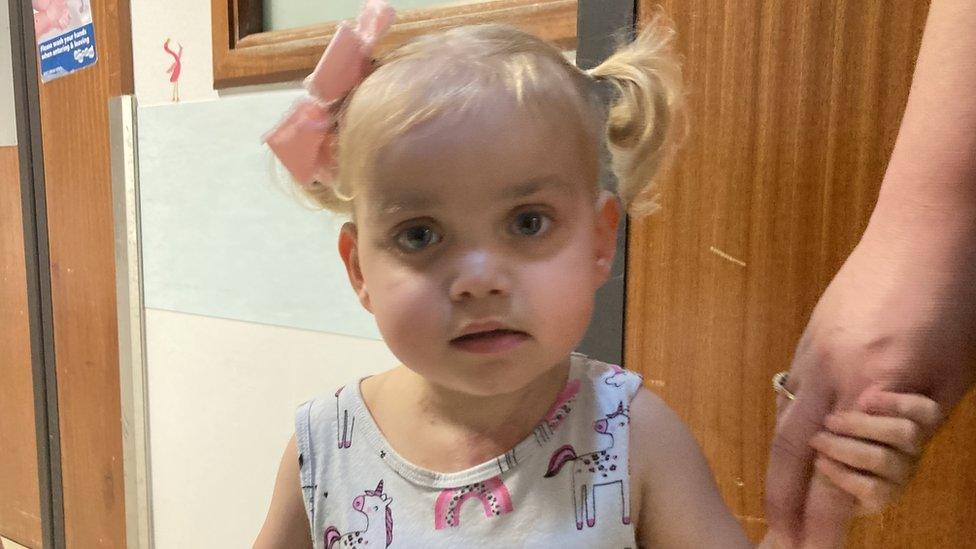
- Published21 July 2022
